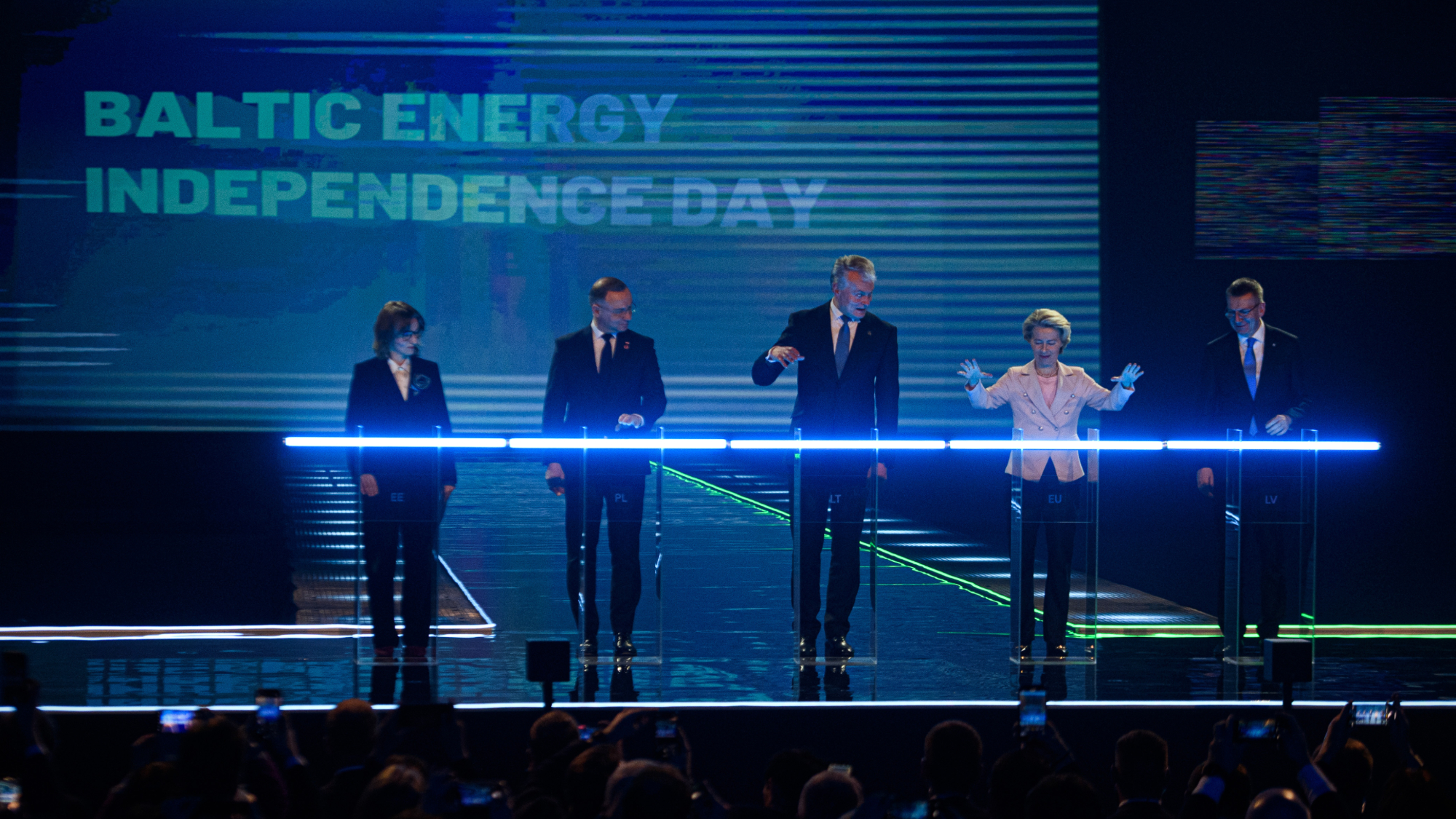Baltic States unplug from Russian grid, join EU's
Estonia, Latvia and Lithuania are disconnecting from the Soviet-era electricity grid to join the EU's network


A free daily email with the biggest news stories of the day – and the best features from TheWeek.com
You are now subscribed
Your newsletter sign-up was successful
What happened
Estonia, Latvia and Lithuania joined Europe's power grid Sunday, 24 hours after disconnecting the final cables linking them with the Russian electricity network on Saturday. The three Baltic countries had been connected to Moscow's power grid since Soviet days, along with Belarus and the tiny Russian enclave Kaliningrad.
Who said what
The switch from the Soviet-era grid, "controlled almost entirely by Moscow," had "been in the works since 2007" but was spurred forward after Russia's full-scale invasion of Ukraine in 2022, the BBC said. The Baltic countries, which joined NATO and the European Union in 2004, "have not purchased electricity from Russia since 2022," but their link to the grid still "left them dependent on Moscow for energy flow" if their own power generation fell short.
"This is freedom," EU chief Ursula von der Leyen said at a ceremony in Lithuania's capital, "freedom from threats, freedom from blackmail." Polish President Andrzej Duda called the Baltic power switch their "final step toward emancipation from the post-Soviet sphere of dependence."
The Week
Escape your echo chamber. Get the facts behind the news, plus analysis from multiple perspectives.

Sign up for The Week's Free Newsletters
From our morning news briefing to a weekly Good News Newsletter, get the best of The Week delivered directly to your inbox.
From our morning news briefing to a weekly Good News Newsletter, get the best of The Week delivered directly to your inbox.
What next?
The Baltic countries are connected to the EU grid through Finland, Sweden and Poland, and officials expressed concerns that the undersea cables to the two Nordic nations could be severed by Russia's "shadow fleet." But Kaliningrad, which has "historically relied on the Baltic grid to import electricity," may "actually face the most serious challenges," Politico said, though Moscow insists it "can be self-sufficient."
A free daily email with the biggest news stories of the day – and the best features from TheWeek.com
Peter has worked as a news and culture writer and editor at The Week since the site's launch in 2008. He covers politics, world affairs, religion and cultural currents. His journalism career began as a copy editor at a financial newswire and has included editorial positions at The New York Times Magazine, Facts on File, and Oregon State University.
-
 The ‘ravenous’ demand for Cornish minerals
The ‘ravenous’ demand for Cornish mineralsUnder the Radar Growing need for critical minerals to power tech has intensified ‘appetite’ for lithium, which could be a ‘huge boon’ for local economy
-
 Why are election experts taking Trump’s midterm threats seriously?
Why are election experts taking Trump’s midterm threats seriously?IN THE SPOTLIGHT As the president muses about polling place deployments and a centralized electoral system aimed at one-party control, lawmakers are taking this administration at its word
-
 ‘Restaurateurs have become millionaires’
‘Restaurateurs have become millionaires’Instant Opinion Opinion, comment and editorials of the day
-
 Ex-South Korean leader gets life sentence for insurrection
Ex-South Korean leader gets life sentence for insurrectionSpeed Read South Korean President Yoon Suk Yeol was sentenced to life in prison over his declaration of martial law in 2024
-
 Rubio boosts Orbán ahead of Hungary election
Rubio boosts Orbán ahead of Hungary electionSpeed Read Far-right nationalist Prime Minister Viktor Orbán is facing a tough re-election fight after many years in power
-
 Alexei Navalny and Russia’s history of poisonings
Alexei Navalny and Russia’s history of poisoningsThe Explainer ‘Precise’ and ‘deniable’, the Kremlin’s use of poison to silence critics has become a ’geopolitical signature flourish’
-
 Key Bangladesh election returns old guard to power
Key Bangladesh election returns old guard to powerSpeed Read The Bangladesh Nationalist Party claimed a decisive victory
-
 US, Russia restart military dialogue as treaty ends
US, Russia restart military dialogue as treaty endsSpeed Read New START was the last remaining nuclear arms treaty between the countries
-
 What happens now that the US-Russia nuclear treaty is expiring?
What happens now that the US-Russia nuclear treaty is expiring?TODAY’S BIG QUESTION Weapons experts worry that the end of the New START treaty marks the beginning of a 21st-century atomic arms race
-
 EU and India clinch trade pact amid US tariff war
EU and India clinch trade pact amid US tariff warSpeed Read The agreement will slash tariffs on most goods over the next decade
-
 Grok in the crosshairs as EU launches deepfake porn probe
Grok in the crosshairs as EU launches deepfake porn probeIN THE SPOTLIGHT The European Union has officially begun investigating Elon Musk’s proprietary AI, as regulators zero in on Grok’s porn problem and its impact continent-wide
